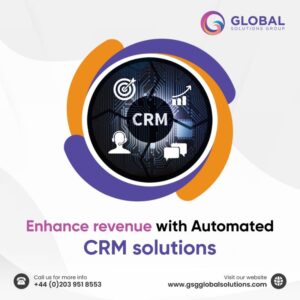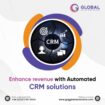In the ever-evolving landscape of modern business, efficiency, integration, and streamlined operations are not just advantages but essential components for success. This is where ERP (Enterprise Resource Planning) software plays a pivotal role. At the heart of ERP systems are complex algorithms designed to manage and integrate core business processes in real-time, providing a unified view of various departments such as finance, HR, manufacturing, supply chain, and more.
However, implementing ERP software isn’t merely about installing a new system—it’s about transforming the way a company operates, optimizing workflows, and enhancing decision-making capabilities. This is where ERP software consulting services step in as indispensable partners in the journey towards digital transformation.
The Role of ERP Consultants
Expertise and Guidance:
ERP consultants bring deep expertise not only in ERP systems but also in understanding industry-specific challenges and opportunities. They serve as guides, helping businesses navigate the complex terrain of ERP implementation. From initial planning and system selection to customization, integration, and post-implementation support, consultants ensure that every step aligns with the client’s strategic goals.
Customization and Integration:
No two businesses are alike, and ERP consultants recognize this. They work closely with stakeholders to tailor ERP solutions to fit unique business processes, ensuring maximum efficiency and minimal disruption. Integration with existing systems is also a critical task where consultants excel, ensuring seamless data flow across the organization.
Training and Change Management:
Implementing ERP software involves a significant cultural shift within an organization. ERP consultants play a crucial role in change management, helping employees adapt to new processes and technologies through training programs and workshops. This ensures that the entire workforce embraces the new system, maximizing its benefits from day one.
Continuous Improvement:
The journey doesn’t end with implementation. ERP consultants facilitate continuous improvement by monitoring system performance, identifying bottlenecks, and recommending enhancements. They stay updated with the latest ERP trends and technologies, ensuring that their clients remain competitive in a dynamic marketplace.
Key Benefits of ERP Software Consulting Services
Improved Efficiency: Streamlined processes lead to increased productivity and reduced operational costs.
Data-Driven Decision Making: Real-time access to integrated data empowers management with insights for strategic decision-making.
Scalability: ERP systems are designed to grow with your business, supporting expansion into new markets or product lines.
Compliance and Risk Management: ERP solutions often include robust security features and compliance functionalities, mitigating risks associated with data breaches or regulatory non-compliance.
Enhanced Customer Satisfaction: By streamlining operations, ERP systems enable businesses to deliver better customer service and support.
Conclusion
In conclusion, ERP software consulting services are not just about technology—they are about transforming businesses. They empower organizations to achieve operational excellence, agility, and competitiveness in today’s fast-paced digital economy. By leveraging the expertise of ERP consultants, businesses can embark on a journey of growth and innovation, unlocking their full potential and laying a solid foundation for future success.
If your organization is considering ERP implementation or looking to optimize existing ERP systems, partnering with a trusted ERP consultant could be the key to realizing your strategic objectives. Embrace the future of business with ERP software consulting services and embark on a transformative journey towards efficiency and growth.




